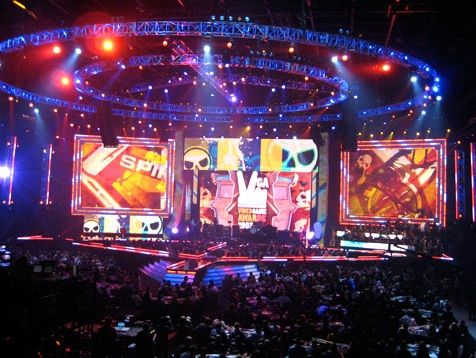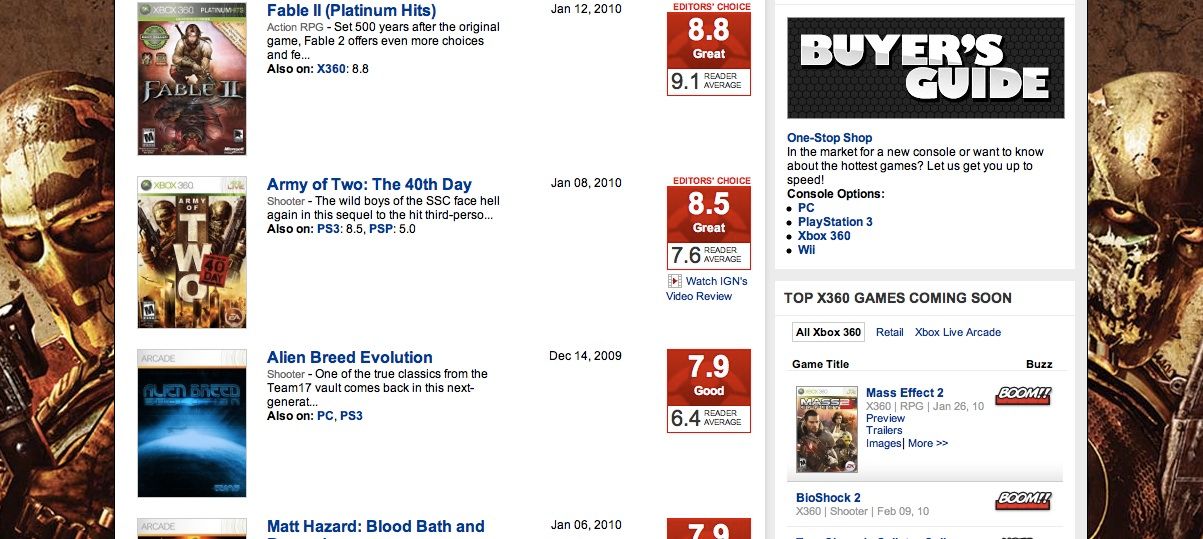One site gives a game a 7.4/10.0. Another gives the same game 3/5 stars. And one more gives the game a 9.5/10.0. Which one of the three reviewers had their opinion tainted? You got it! It was the third one. But don't worry, defend your site/magazine/show, because it's all opinionated. One reviewer's opinion is different from another right? Heard that one way too many times before. Let's cut the crap. Some video game publications are being paid off by publishers to boost the appeal of certain games. These companies are being paid to cheat. To cheat the system and to cheat you all from a truly objective view of a game. And we gamers hate cheaters.
I want to start with a simple and basic real world example. Take a look at Spike TV's Video Game Awards (VGA). The winners are voted on and you can agree or disagree with the fans, doesn't matter. The issue here is not the winners, but the nominees. VGA 2004 had Fantastic Four nominated five times.
I don't remember that game being that good. I'm sure there were plenty of other video games in 2004 that could have taken those nomination slots. On second thought... maybe not. If you take a look at the categories, they seem tailored made for Fantastic Four. Two of the categories were BEST CYBER VIXEN and BEST PERFORMANCE BY HUMAN FEMALE. It looks like someone really wanted Jessica Alba's name to be mentioned twice that night.
The game ended up winning zero awards that night. So, if the fans didn't like the game, who got this game nominated so many times? I don't know, but his name could very well be "money." Someone at the "Video Game Awards" must have been paid. This was just a blatantly obvious example of what may be happening at possibly some of your favorite video game review sources.
What has been shady to me lately is IGN. Take a look at this image:
Metacritic gives Army of Two: The 40th Day a 73 out of 100. Heck, we here at DualShockers gave it a 3 stars out of 5. Its average score from all the critics is a 73, and IGN has given it a 8.5 out of 100 and an Editor's Choice award. I guess it's just a coincidence IGN's layout for the day was... Army of Two: The 40th Day. I'll leave this one up to you. Maybe the reviewer really did like it, and it just so happens Electronic Arts is paying the bills too. I shouldn't connect invisible lines, but it seems fishy and strikingly similar to an incident that has happened before.
One of the greatest cases of a video game publication being paid off by publishers happened in 2007. GameSpot writer Jeff Gerstmann was terminated from said publication along with several editors quitting shortly after, because the integrity of their reviews were being compromised by greed. GameSpot's reason for terminating Gerstmann were never officially confirmed, but it does not need to be.
His unbiased review of Kane & Lynch: Dead Men gave the average game an average score. But at the time, GameSpot was being paid very above average by publisher Eidos Interactive, possibly to have the favor returned. GameSpot has a rich history of being paid tremendously well by publishers of terrible games. Themes and backgrounds of mediocre to horrible games have plagued the GameSpot site numerous times, and that doesn't come cheap. We may not know the exact reason why Gerstmann was terminated, but what we do know is that he did not give the game a royal score boost, and we know several other editors couldn't do it neither.
So, do we dare ask publications such as GameSpot is take a possible price-cut from their income in favor of little ol' us? The gamers? My answer is: "this is video game JOURNALISM." Journalism, not public relations and not advertising. Speaking as a journalist, we are here to serve the people. The early history of journalism began as the flow of information from person to person through word of mouth, the passing of pieces of paper, and community boards and books. It was hidden and undetected by influences such as the government, who saw that people knowing certain information a threat as it would give them too much power. In the same way, video game journalism should not under any circumstance write for the service of any other reasons besides the investment of a gamer's clicks or $19.95 subscription.
Who could we trust? Who can't we trust? Does anyone even care? And what can we even do about it? Maybe all these questions cannot be answered. Who knows, maybe even our reviews are somewhat tainted. We get free games, maybe subconsciously we already feel the need to "thank" the publishers or have an already positive mindset towards a free game, and not even realize it. Journalists can be as objective as they can be, because nothing is truly objective. But publications that push and pressure critics to boost a score are the true problem, and it's up to time and people like Jeff Gerstmann to expose them.



